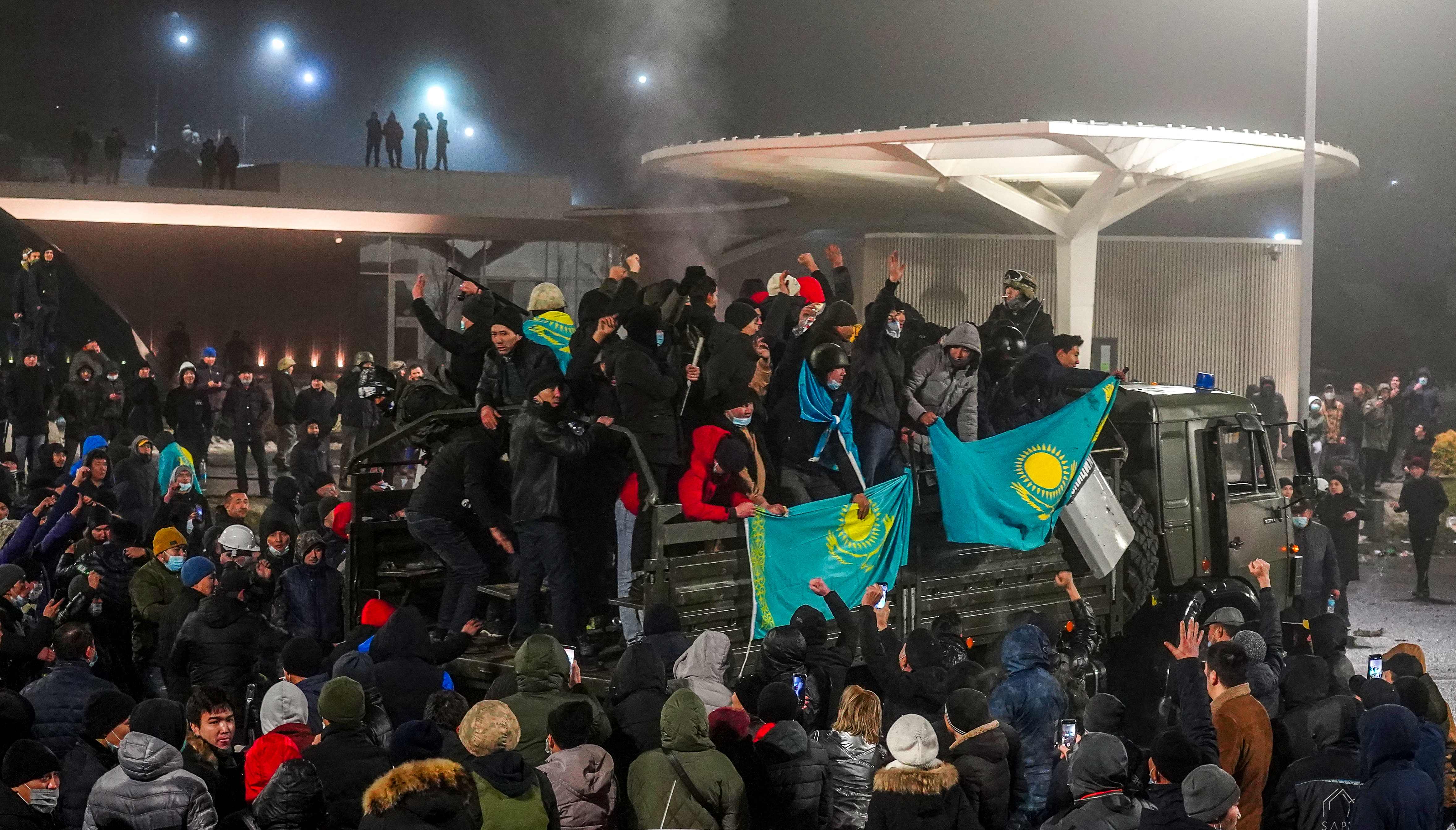Despite widespread unrest, Kazakhstan could be a crucial Western ally
Western nations must welcome and support the nation’s transition and no longer see President Tokayev as Russia’s puppet but as a progressive leader, writes Vladislav L. Inozemtsev

When the news about widespread protests came out of Kazakhstan in early January, the fog of war prevailed.
Some observers mistook the events for the onset of another “colour revolution” aimed at overthrowing an entrenched authoritarian regime. Others called the rioters “terrorists” – but a month after the protests first began, the overall picture has become clearer.
For three decades, Kazakhstan has been one of the most economically-successful post-Soviet nations, with the country’s core industries producing oil, gas and uranium at a much faster rate than neighbouring Russia.
Kazakhstan attracted more than $120 billion (£88.5bn) of foreign direct investment (FDI) from the US and Europe. The country’s first president, Nursultan Nazarbayev, established a new capital city; sent Soviet nuclear arsenals back to Russia and conducted a sophisticated “multi-vector” foreign policy to keep Russia, China, and the West equidistant.
But in 2019, Nazarbayev did something unimaginable – he quit the presidential position and Kassym-Jomart Tokayev, his experienced prime minister and foreign minister, got elected in his place. The transfer of power was almost finished by December 2021, when it was announced that Tokayev would take over from Nazarbayev as the chairman of the ruling party Nur-Otan.
But Kazakhstan, despite its achievements, remained a divided country as the economic gap between rich and poor ceased to become smaller. There were economic hardships that animated ordinary people, while the political challenges of dual presidency electrified the elites.
The unrest that started on 2 January this year spilt over the entire nation in several days. While in most regions the protests remained peaceful, for several days extremists and gangsters terrorised and vandalised the old capital and the business hub, Almaty, often using the crowd as a “living shield”.
It seems that they were supported, if not organised, by officials at the National Security Committee, whose ex-chairman, Karim Massimov, is now in custody. Facing such a coup attempt, President Tokayev dismissed the Cabinet responsible for economic policy, declared himself chairman of the Security Council, taking this position from Nazarbayev, and was able to prevent the looming prospect of the civil war because of the actions of the old elites.
Today, Kazakhstan faces crucial economic and political reforms that always come after huge social upheavals. As a scholar who spent years mastering developmental economics, I would say that Kazakhstan’s path reminds me of the “classical” East Asian experience – particularly modernisations in South Korea, Taiwan, Indonesia, and of course, China.
In all these cases, modernisations started under strong centralised regimes, and their first steps were marked by excessive concentration of wealth and a visible gap in living standards.
In Kazakhstan, we are now seeing the first steps of similar developments. President Tokayev is poised to rely on a new bureaucracy – mostly young professionals educated abroad under the state-financed student exchange programs – and on the businesses that were not connected with Nazarbayev’s family members. Getting rid of cronies has become a vital task in every Asian economy after the change in political regime.
Today the first contributors to the new fund President Tokayev created for addressing the most acute social issues, called “For the People of Kazakhstan”, include Kenes Rakishev’s Saby charity foundation and the Kaspi bank that was valued at $6.5 billion (£4.8b) at the London Stock Exchange IPO in late 2020.
Both companies, like many other contributors, were not owned or managed by members of the former president’s family. Of course, the more serious pro-market reforms must follow suit, and some contours of new developments are almost visible – so I would argue that the latest developments in Kazakhstan might be seen as the crucial watershed separating the first post-Soviet decades from a new stage of economic and social advance.
For this advance to happen, the Western nations should welcome and support Kazakhstan’s current transition. President Tokayev needs to be seen not as Russia’s puppet but as a progressive leader; who may not only foster the reforms initiated under President Nazarbayev, but lead his country into the future – paving the way to a liberal and democratic society.
The Western world has a vital need for an ally in the region that borders both Russia and China. Kazakhstan – one shouldn’t forget – has been constantly influenced by Turkey and faces the challenges of militant Islam that poses a huge threat to both Europe’s and America’s security.
To keep up to speed with all the latest opinions and comment sign up to our free weekly Voices Dispatches newsletter by clicking here
The West possesses a huge transformative power in the region – not only because it has been the largest foreign investor in Kazakhstan’s economy, but also because it is seen as a necessary counterbalance to both neighbouring superpowers.
When I visited Kazakhstan two months ago for the Astana Club session, well-informed and sophisticated people there were concerned with Russia’s potential claims on the country’s sovereignty and with China’s growing economic presence in the region.
Taking all this into account, I would argue that the Western companies’ presence and Western governments’ engagement in Kazakhstan could be considered as priceless assets shaping the future of this emerging nation – and the West should not miss a historic chance for establishing a foothold in the most dynamic and geopolitically-crucial part of the post-Soviet realm.






Join our commenting forum
Join thought-provoking conversations, follow other Independent readers and see their replies
Comments